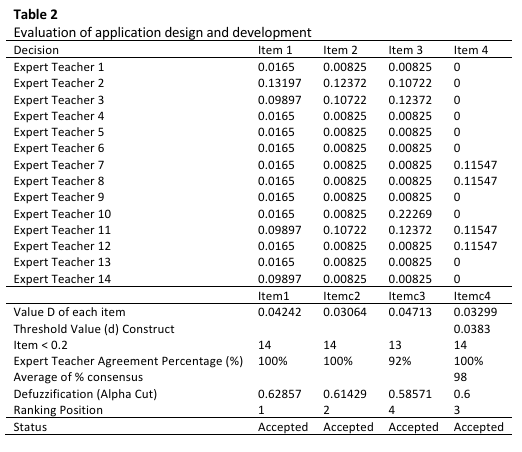Enhancing Flipped Classroom Mastery Learning using ZOOMRBT Apps with Fuzzy Delphi Method Verification
DOI:
https://doi.org/10.37934/ard.142.1.7888Keywords:
flipped classroom model, ZOOMRBT apps, development and design, mastery learning, Fuzzy Delphi method, Malaysian boarding schools’ teacherAbstract
The objective of this research is to investigate expert consensus on designing and developing ZOOMRBT apps for the purpose of enhancing students' mastery learning skills in a flipped classroom environment. This research employed a purposive sampling technique, selecting fourteen experts. The evaluation of flipped classroom deployment and lesson preparation was carried out using the fuzzy Delphi technique and data analysis involved the use of Triangular Fuzzy Numbers and Defuzzification. This research not only seeks to foster independent learners capable of addressing today's challenges but also aims to improve the quality of teaching and learning. In the flipped classroom setting, the ZOOMRBT mobile application is proposed as a model for mastery learning. Proficient instructors participated in this training and the online flipped classroom was carefully planned to integrate pre-class, in-class and post-class activities. The ZOOMRBT app was utilized during these sessions to create a cutting-edge learning environment. The results showed that all the experts unanimously reached a consensus of 100%. The approach of designing and developing ZOOMRBT to enhance mastery learning skills in flipped classroom settings was unanimously accepted by all the experts. The ongoing objective of this study is to assist educators in improving their pedagogical competence and their understanding of digital pedagogy, ultimately empowering students in Malaysian Boarding Schools to become more skilled learners.
Downloads























